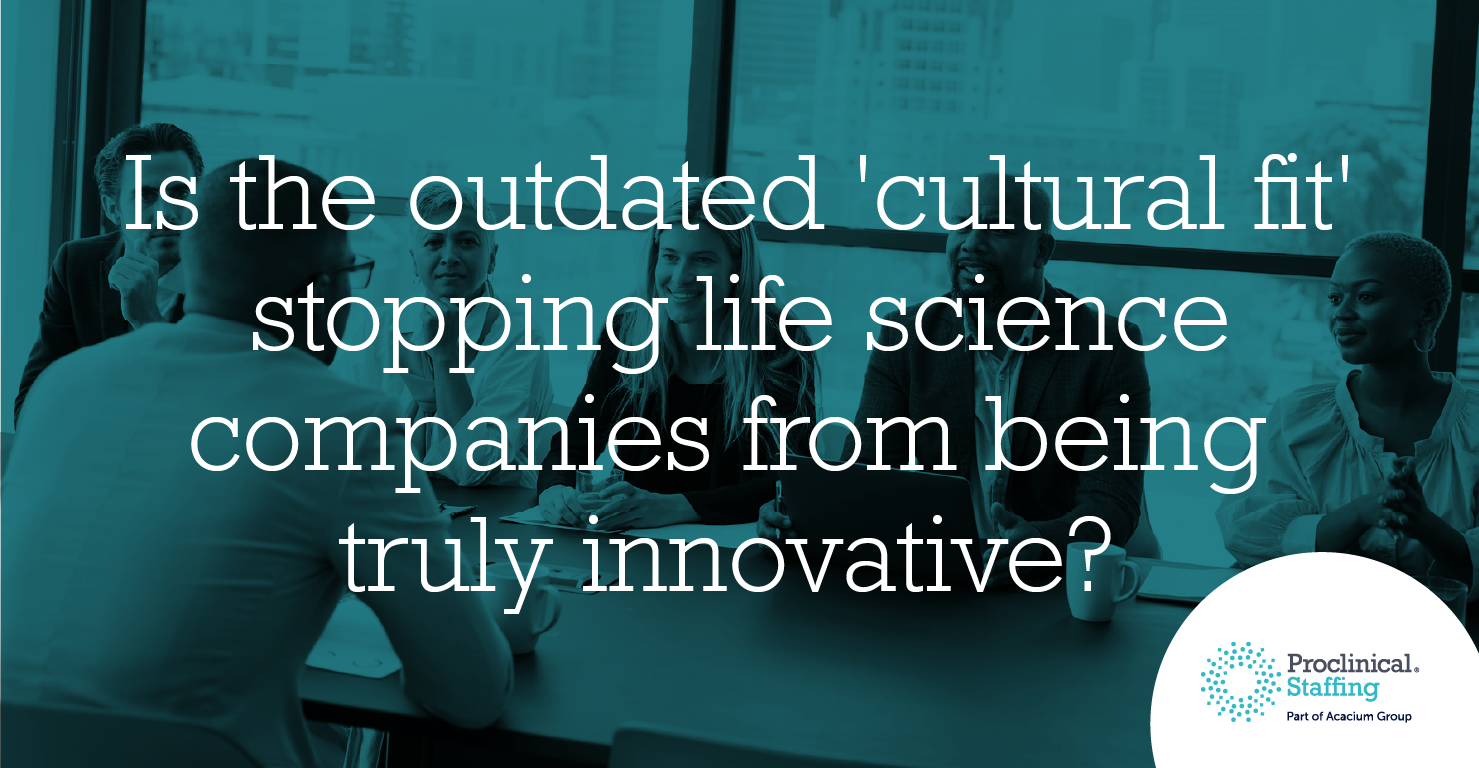
In a world that celebrates individuality and diversity, are life science companies missing a trick if they stick to the outdated idea of a ‘cultural fit’ when hiring? While it’s important to ensure the people you hire share the values of the company, misconceptions of what a cultural fit really is increase the risk that your company will miss out on talent that could lead it to new heights of innovation. Often the healthiest thing your company can do is hire a few mavericks to shake things up and encourage more innovative thinking.
What is a cultural fit?
A cultural fit is a person who identifies with the values and beliefs of the company and extends to how well their personality and behaviours will interact with the existing team.
When hiring for cultural fit, the focus should be on whether the individual’s values are aligned with the core values of your company. Therefore, it is important that your organization first defines and articulate its values, goals and practices, and integrates these into its hiring process. In the life science industry, professionals are already united by their vocation to save and improve people’s lives. They inherently share similar values and work towards the same goals.
Why is cultural fit important?
Hiring individuals that align with the culture of your business is shown to reduce staff turnover and improve performance. This is because they feel a sense of belonging and fulfilment so tend to have higher job satisfaction and give greater discretional effort to their role. What else needs to be considered?
There’s no doubt that having a good cultural fit benefits both the employer and the employee. However, while shared values and beliefs are essential in determining whether the candidate will integrate well, it's important to avoid putting too much focus on whether candidates tick certain ‘culture fit’ boxes during their interview. A person’s suitability cannot always be assessed through a set of generic ‘fit’ questions, and pigeonholing them into certain ‘types’ can cause employers to overlook the potential of their individual offering. The meaning of cultural fit, therefore, cannot always be fixed, as there is no set formula to determine whether someone will thrive at the company. So, what else should you look for when making new hires?
Consider a candidate’s potential
Potential brings new perspectives and motivation to learn, ask different questions, and think creatively. Hiring for potential means acknowledging everything a candidate could bring to the team. When you seek unlocked potential in candidates, you give them the chance to show parts of their identity or skillset that you may have initially overlooked.
Look for people who will bring something new
Occasionally, someone will come along and offer a different outlook that may challenge the way things are done at the company. Rather than looking for a candidate who will fit in, consider what they can bring to your company to challenge and shape it for the better. In order to grow and innovate you need to be prepared to challenge the status quo. When you have a strong sense of culture, it might be instinctive to protect it and look for people who bring more of the same. Approaching hiring with the mind-set of diversity invites candidates to showcase their unique perspectives and backgrounds, bringing new ideas, fresh perspectives and more creativity into your team.
Diversity leads to innovation
In the life science industry, where innovation is essential to making medical advancements, companies must do everything in their power to secure not only highly skilled talent but those who will offer new ideas and a fresh perspective. Innovation at a life science company does not only happen in the lab or come from the leadership team. It should be happening across the business, with all employees of all levels working to create new and better ways to deliver healthcare to patients. Therefore, continuous transformation is a life science company’s most valuable tool in staying ahead of the curve, and building a diverse workforce is the key.
This can be achieved by keeping in mind that a healthy mix of personalities, nationalities, ages and personal working styles leads to a robust and inventive workforce. During interviews, hiring managers may benefit from taking a more holistic approach by assessing a person on their performance throughout the entire interviewing process. Often a candidate may not immediately conform to a cultural fit template from the outset, but some well-thought-out questions could help employers probe beneath the surface and uncover a gem.
Looking to grow your team? Our team of life science experts, based across Europe, North America and Asia-Pacific are here to help. To learn more about our suite of services, contact us today.


.png)





.png)

.png)
.png)

.png)
.png)












